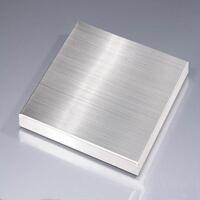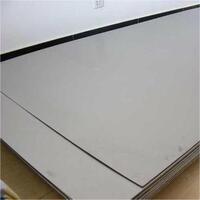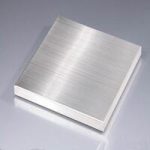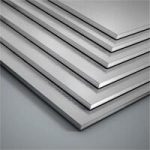Professional and high-quality metal alloys, ceramic products and concrete additives | RBOSCHCO
PRODUCT PARAMETERS
Description
Overview of Aluminum-copper alloy forging
Aluminum-copper alloy forgings are metal products made of aluminum alloy material with Al (aluminum) as the mAln component through the forging process.Al&Al alloy forgings have excellent machinability, electrical conductivity, and lightweight characteristics. They are, therefore widely used in many fields.

(AI&AI Alloy /Cu&Cu Alloy Forgings)
Features of Aluminum-copper alloy forging
Good machining performance: Al&Al alloy forgings have good plasticity and toughness and can be subjected to various machining operations, such as turning, milling, and drilling.Excellent electrical conductivity: Aluminum alloy materials have good electrical conductivity, so Al&Al alloy forgings are widely used in electronics, electricity, and other fields.Lightweight characteristics: Aluminum alloy materials have a lower density, which is conducive to achieving lightweight parts and reducing energy consumption and noise.High strength and corrosion resistance: By adding alloying elements and an appropriate heat treatment process, the strength and corrosion resistance of Al&Al alloy forgings can be improved.
Parameter table of Aluminum-copper alloy forging
| Parameter | Details |
|---|---|
| Material | Aluminum-Copper Alloy (e.g., 2024, 2219, 2014) |
| Copper Content | 3.0% – 5.0% (varies by alloy grade) |
| Density | ~2.78 g/cm³ |
| Tensile Strength | 400 – 500 MPa (varies by heat treatment and alloy grade) |
| Yield Strength | 250 – 400 MPa (depends on temper and alloy composition) |
| Elongation | 8% – 15% (varies by temper and alloy grade) |
| Hardness | 120 – 150 HB (Brinell Hardness) |
| Thermal Conductivity | 120 – 160 W/m·K |
| Melting Point | ~640°C (1184°F) |
| Forging Temperature | 350°C – 450°C (662°F – 842°F) |
| Corrosion Resistance | Moderate (requires protective coatings for harsh environments) |
| Machinability | Good (requires proper tooling and lubrication) |
| Applications | Aerospace components, automotive parts, structural forgings, etc. |
Applications of Aluminum-copper alloy forging
Al&Al alloy forgings are widely used in automobile manufacturing. They are mainly applied to manufacturing automobile parts, such as engines, transmission, suspension systems, etc. As aluminum alloy material has a lightweight advantage and good processing performance, aluminum alloy forgings can reduce the car’s overall weight and improve fuel economy and emission performance. In addition, the aluminum alloy material has good thermal conductivity, which is conducive to heat dissipation of high-temperature parts such as engines and improves the safety performance of automobiles. Electronic equipment manufacturing Al&Al alloy forgings also have a wide range of applications in the manufacture of electronic equipment, such as circuit boards, connectors, terminals, etc. Light weight aluminum alloy product has exceptional conductivity and handling efficiency, appropriate for making high-precision, high-stability digital elements. At the same time, the light-weight features of light weight aluminum alloy products are additionally for boosting the mobility and dependability of digital tools. Construction fieldIn construction, Al&Al alloy forgings can be used to manufacture building structural parts, decorative parts, and so on. As aluminum alloy material has a lightweight advantage and high-strength performance, it can significantly reduce the weight of the building, reduce the foundation bearing pressure, and improve the seismic performance and safety of the building. At the same time, the corrosion resistance and aesthetics of aluminum alloy materials also make them suitable for building decoration. Aerospace field alloy forgings also have a wide range of applications in the aerospace field, such as aircraft fuselage, wings, engine parts, etc. Aluminum alloy materials have lightweight advantages and high-strength performance, which is conducive to improving the fuel economy and flight safety of Aircraft. At the same time, the corrosion resistance and high-temperature performance of aluminum alloy materials also make them suitable for special environmental conditions in the aerospace field.
Production Method of Aluminum-copper alloy forging
The following steps are usually used to manufacture Al&Al alloy forgings:Melting: Aluminum, copper, and other alloy materials are heated above the melting point and stirred thoroughly to form a uniform alloy melt.Pouring: the alloy melt is poured into a mold, and the alloy ingot is obtAlned after cooling.Sawing: The ingot is sawed into billets of a certAln size.Heating: The billet is heated to a forging temperature to give it plasticity.Forging: Put the heated billet into the forging mold and apply a high-pressure shock wave to make the billet undergo plastic deformation to form the desired shape and size of the forging.Heat treatment: Appropriate heat treatment is performed on the forged Al&Al alloy forgings to improve their properties.


Applications of AI&AI Alloy /Cu&Cu Alloy Forgings Copper Forgings
Company Profile
RBOSCHCO is a trusted global chemical material supplier & manufacturer with over 12-year-experience in providing super high-quality chemicals and nanomaterials, including boride powder, nitride powder, graphite powder, sulfide powder, 3D printing powder, etc.The company has a professional technical department and Quality Supervision Department, a well-equipped laboratory, and equipped with advanced testing equipment and after-sales customer service center.If you are looking for high-quality Aluminum-copper alloy forgings, please feel free to contact us or click on the needed products to send an inquiry.

Storage Condition of Aluminum-copper alloy forging
Aluminum-copper alloy forgings should be stored in a dry, well-ventilated environment to prevent moisture absorption and corrosion. Ideal storage temperature is between 10°C to 30°C (50°F to 86°F). Avoid exposure to high humidity, direct sunlight, or corrosive substances such as acids or alkalis. Use protective coatings or packaging (e.g., VCI paper or plastic wraps) to shield the forgings from oxidation and contamination. Store them on pallets or racks so avoid contact with the ground and ensure proper airflow. Regularly inspect for signs of corrosion or damage, especially in humid or coastal areas. Proper storage ensures the material retains its mechanical properties and surface quality.

Package and shipment of Aluminum-copper alloy forging
We have many different kinds of packing which depend on the quantity.
By sea, by air, by express as soon as possible once payment receipt

Payment of Aluminum-copper alloy forging
L/C, T/T, Western Union, Paypal, Credit Card etc.
5 FAQs of Aluminum-copper alloy forging
Q1
What are the advantages of aluminum alloy/copper and copper alloy forgings over castings?
Answer: Forgings have higher mechanical properties, more uniform organizational structure and better metal flow, so they generally have higher strength and better toughness than castings.
Q2
What is the corrosion resistance of aluminum alloy/copper and copper alloy forgings?
Answer: Aluminum alloys and copper alloys generally have good corrosion resistance, especially in certain chemical environments. However, the specific corrosion resistance depends on the composition of the alloy and the environment in which it is used.
Q3
How are aluminum alloy/copper and copper alloy forgings surface treated?
Answer: Common surface treatment methods include anodizing, electroplating, spraying, polishing, etc. to improve the appearance quality, corrosion resistance or conductivity of the product.
Q4
What are the prices for aluminum alloy/copper and copper alloy forgings?
Answer: Prices vary depending on factors such as material type, size, production process and market demand. Generally speaking, the price of forgings will be higher than castings or machined parts of the same material.
Q5
What should we pay attention to during the use of aluminum alloy/copper and copper alloy forgings?
Answer: During use, care needs to be taken to avoid excessive stress, high temperatures and corrosive environments to maintain product performance and service life.
REQUEST A QUOTE
RELATED PRODUCTS
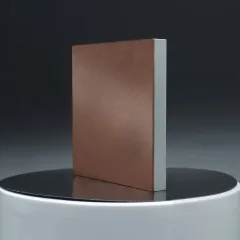
Copper Aluminum Composite Plate Copper Nickel Plate Customized Copper Nickel Plate
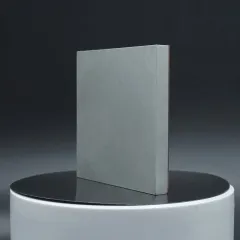
Ni steel Nickel Clad Steel Plate
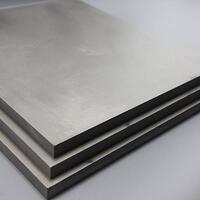
Zr/Steel refractory metal clad plate steel plate

Copper Nickel Alloy Constantan Cupro-Nickel CuNi44 Strip/Foil
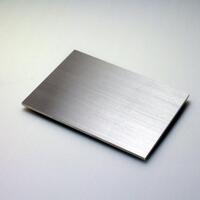
Stainless Steel/Steel Clad Platestainless steel cladding


